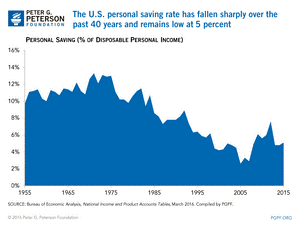
FEMA: Liquid Asset Poverty Disaster
by SH staff January 31, 2018
In the year of historic disaster’s from coast to coast the Federal Emergency Management Agency (FEMA) considers America’s largest disaster to be “liquid asset poverty.”
The statistics are in that the savings rate of American households has declined from near 14 percent to 5 percent since the 1970;s.
A 2016 survey found 63 percent of American households do not have enough money saved to manage a sudden $500 expense.
Individuals who specialize in in finance have pointed to statistics and lectured about money management repeatedly over the years, and according to FEMA it doesn’t seem to be doing much good. The implications are alarming as many families are “one bad day away from financial disaster.”
Emergency managers and elected leaders are being encouraged to look at how this will impact emergency preparedness and affect their jurisdiction. Ideas put forward are:
- Encourage financial literacy and savings as community resilience strategies.
- Form nontraditional partnerships outside emergency management community. Hagerty is suggesting, ” holistic education campaign that sets our kids up for future financial success” between FEMA, the Department of Education and the US Securities and Exchange Commission.
- Introduce no-or low-cost citizen preparedness measures such as teaching CPR yields higher return than stocking 3 days of food.
Relying on FEMA Individual Assistance is not enough, according to a Hagarty article, because it is a temporary fix to a much larger problem and does little to promote future resiliency for families or communities.
Why is this critical to think about? Because after the disasters of this year if it was not for a huge bailout of half their debt, FEMA would be belly up right now. If disasters continue in intensity, as they look be, FEMA will not have the credit to loan you money. You will be on your own.
True community resiliency begins at home, with old fashioned savings.
Source:
http://hagertyconsulting.com/about-us/blog/liquid-asset-poverty/




